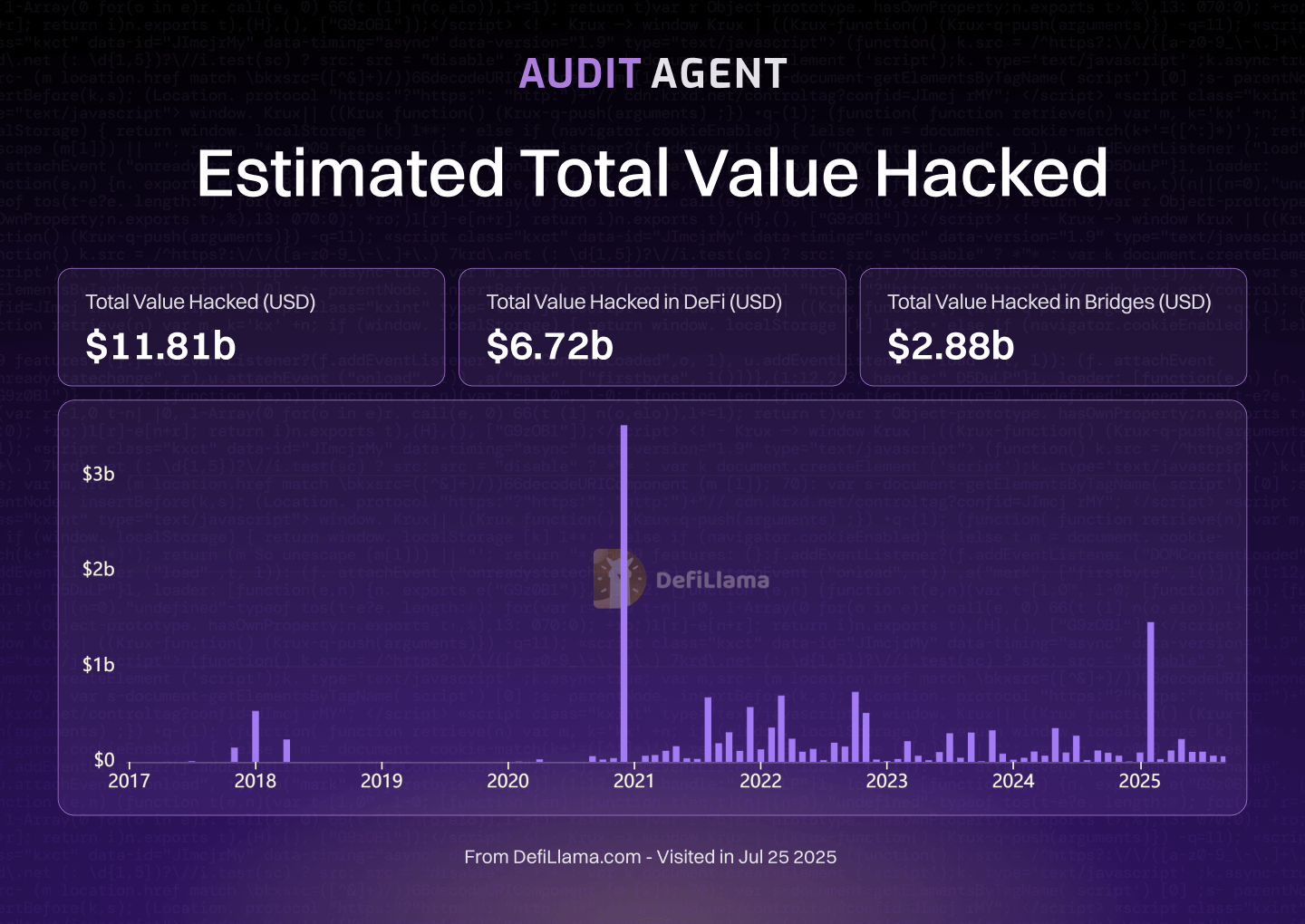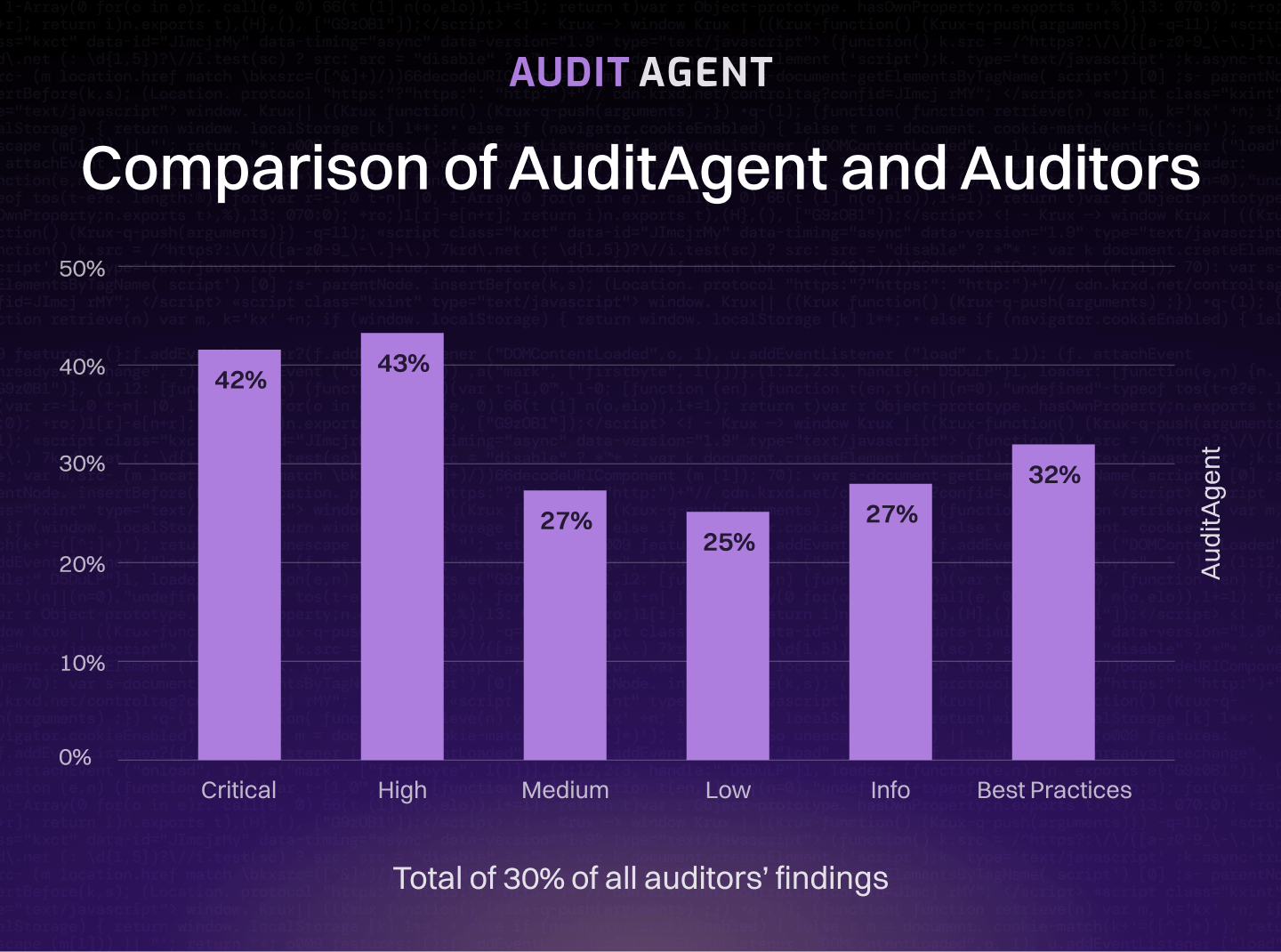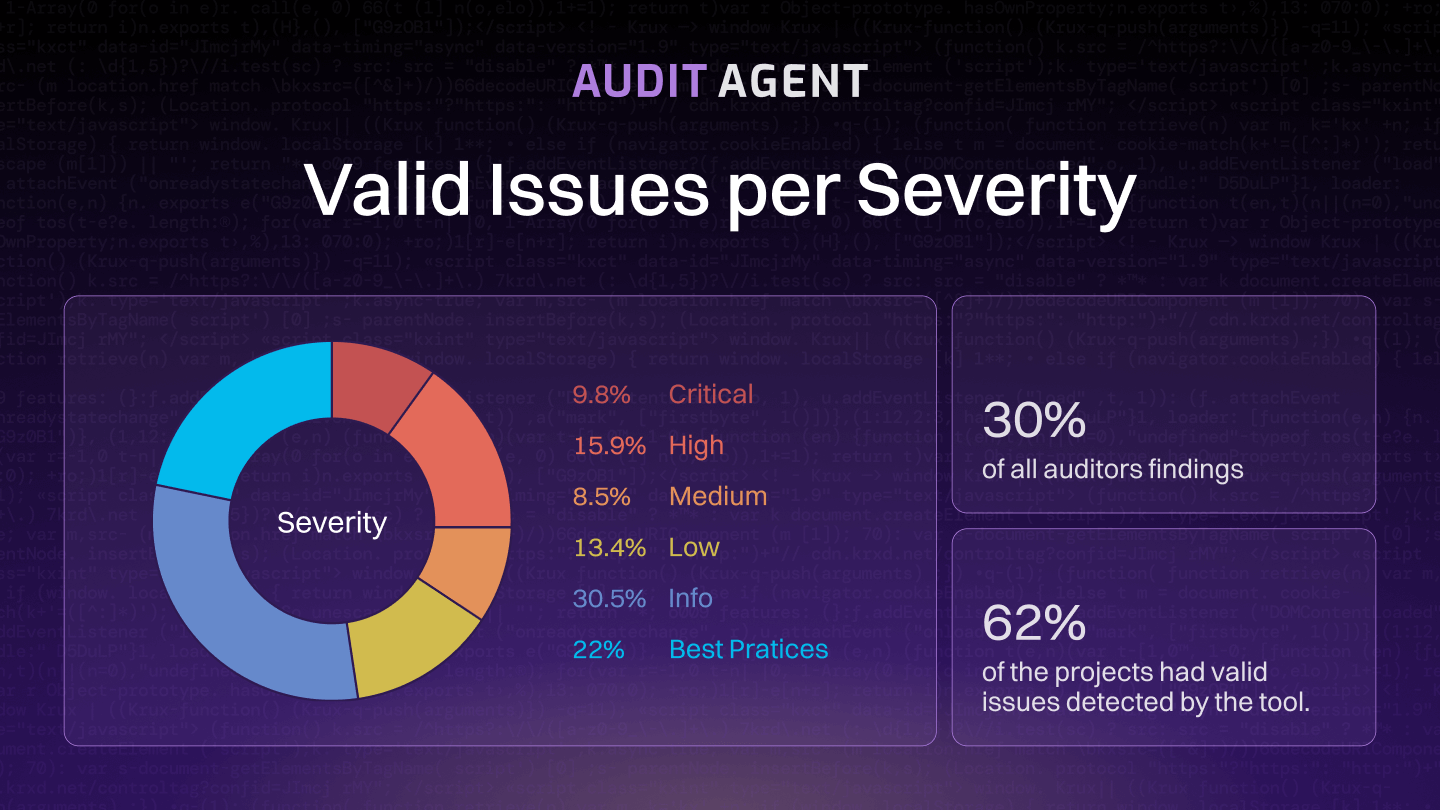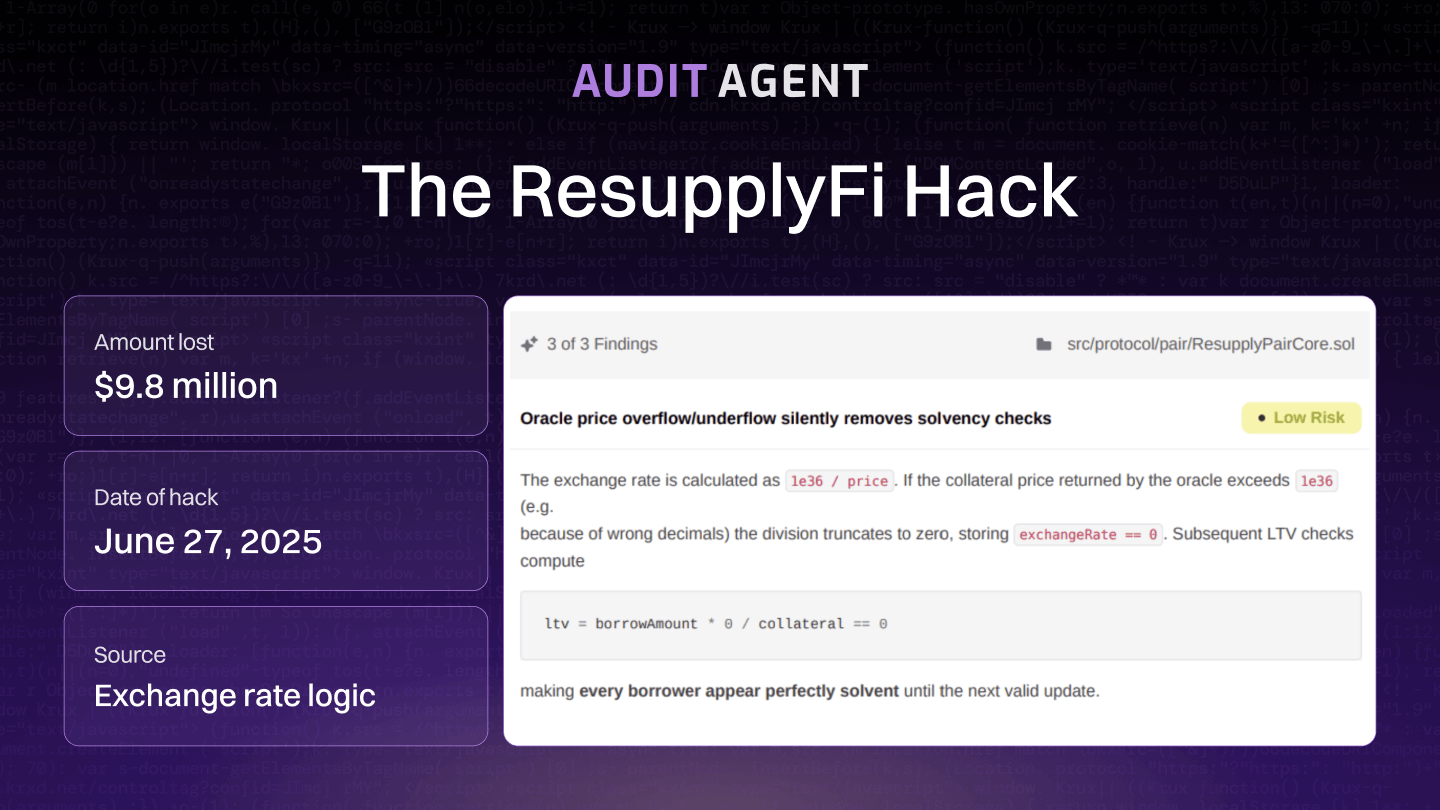Now hiring!

Smart contract vulnerabilities have led to more than $11.8 billion in total value hacked as of July 2025. With the stakes so high, Nethermind Security explored how AI could complement traditional audits. This case study shows how their security research team tested AuditAgent, an AI smart contract audit tool developed internally, and what they learned from applying it to real audits.
Much of this analysis was first presented by Dr. Luciana Silva, PhD, and Security Researcher at Nethermind Security, during her talk at Google’s Web3: Zero Knowledge (ZK) & AI Summit.

Nethermind Security integrated AuditAgent into their workflow by running it after completing manual reviews. The objective was to check whether any potential issues had been overlooked. Each audit followed this process:
Nethermind applied AuditAgent to 29 audits, analyzing projects with a mean of 11.6 contracts and 725 lines of code.
Charts in the study show that AuditAgent’s detection rates were particularly strong in Critical (42%) and High (43%) severity categories.


On June 27, 2025, ResupplyFi lost $9.8 million in a hack. The vulnerability stemmed from a miscalculation in exchange rate logic. When AuditAgent was later run against the contract (July 16, 2025), it flagged this exact issue, suggesting the exploit could have been avoided if the tool had been applied earlier.

While AuditAgent proved valuable, Nethermind identified key areas that need further work:
These findings highlight that while AuditAgent strengthens audits, it is most effective as a pair auditor rather than a standalone solution.